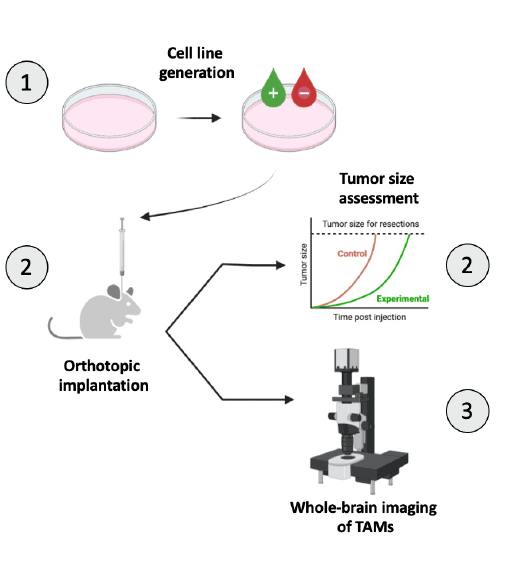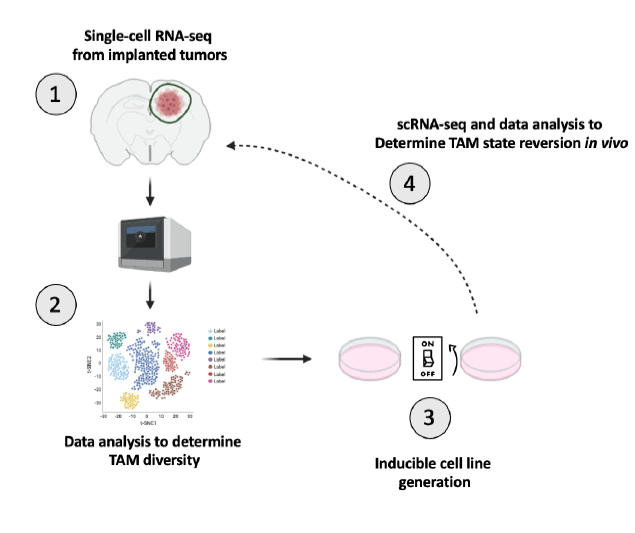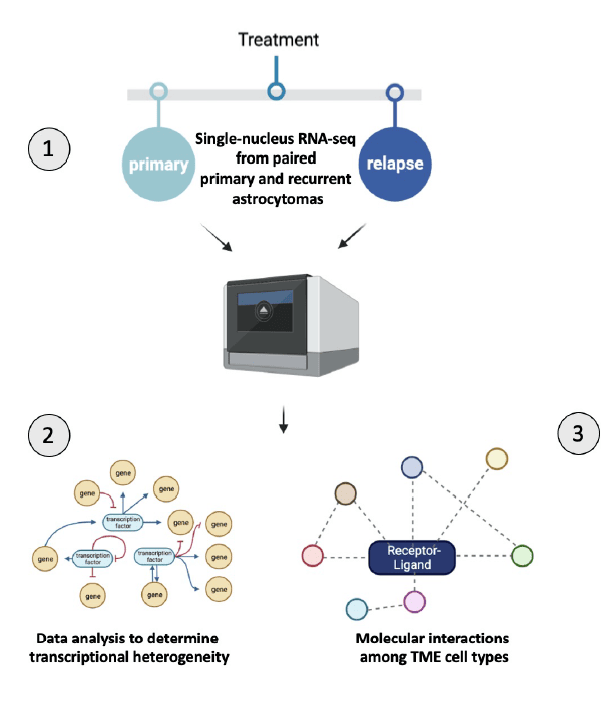Research > Focus A > Work Packages A04
Summary
In this project, we aim to understand how tumor subpopulations influence the transcriptional states of tumor associated microglia (TAM) in malignant astrocytomas harboring isocitrate dehydrogenase (IDH) mutations. Dynamic and complex interactions occur between gliomas and TAM in the tumor microenvironment and these interactions are further compounded by tumor heterogeneity. Specific interactions between tumor subpopulations and TAM states remain unresolved. An understanding of how specific alterations in tumors impact the TAM microenvironment will be important for development of novel therapeutic options.





